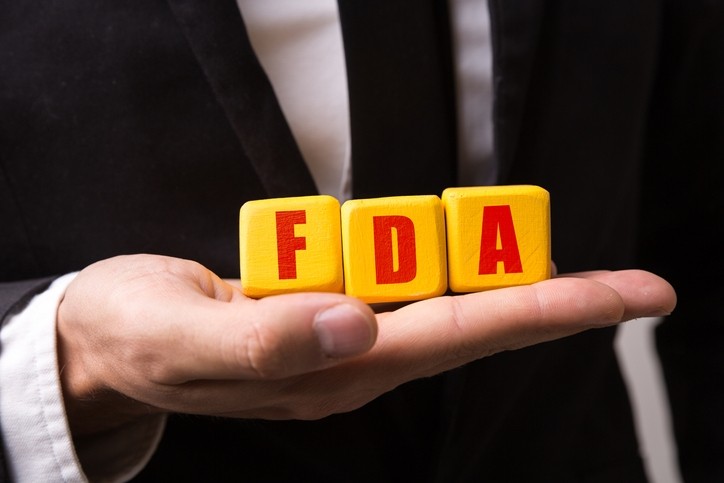FDA lists NDI update among priorities for coming year

The list of administrative priorities was made public yesterday by the US Food and Drug Administration. The document notes that it is a list of documents labeled as “Expected to publish as drafts or finals by June 2022.”
Along with the NDI entry the list includes another entry that impacts the dietary supplement industry about guidance for convening GRAS panels. In the absence of clarity on the NDI issue some dietary ingredient developers have chosen to affirm their products as GRAS instead. Also on the list are nine FSMA rules, eight food safety entries, two allergens rules, two labeling rules and two issues concerning nutrition guidance. Notably absent from the list is a commitment to publish any guidance in the next 12 months relating to the CBD issue.
The first version of the New Dietary Ingredients Draft Guidance was published in 2011. Industry stakeholders had many questions about the particulars in that guidance and after a series of high level meetings the Agency agreed to publish a revised draft version. That document, which still left many sticking points unresolved, was made public in 2015 and has remained in draft form since.
NPA: Revised guidance meaningless without enforcement
Daniel Fabricant, PhD, president and CEO of the Natural Products Association (NPA), said the wording of the entry makes it appear that FDA is planning to break up the new draft into more workable subsections. While that might augur well for a resolution of some of the remaining issues, he questioned whether it will engender the hoped-for new NDI submissions if companies aren’t protected in some way from ‘me-too’ copiers.
“Without any enforcement the whole exercise is still meaningless. An ingredient developer can spend all that time and money and when they have published their NDI and put their ingredient on the market they can still get knocked off by someone from overseas at pennies on the dollar,” Fabricant told NutraIngredients-USA.
Attorney Marc Ullman, of counsel with the firm Rivkin Radler, echoed Fabricant’s concerns.
“FDA’s entire handling of NDIs has been absurd. It seems to me that what they’ve been saying is that they’ve been working for the past decade to put out a set of rules that they’re not going to bother enforcing,” he said.
Many sticking points remain
The two draft guidances relate to a brief paragraph of the Dietary Supplement Health and Education Act (DSHEA), the 1994 law that created the modern dietary supplement regulatory framework. According to the law, ingredient developers are required to submit documentation to the Agency proving a new ingredient is ‘reasonably expected to be safe’ before putting the ingredient on the market. Exceptions are made new offerings that are forms of ingredients that were marketed prior to the grandfathering date of Oct. 15, 1994 (dubbed Old Dietary Ingredients, or ODIs), or ingredients that have achieved GRAS status.
Among the points of disagreement about the NDI draft guidance as it stands is whether the process pertains only to the ingredients themselves or whether new formulas that contain new ingredients ought to submit dossiers. Other bones of contention include the degree to which changes in how ingredients are processed, such as using a different solvent or a different technique such as supercritical CO2 extraction, change an ODI enough that it is now something new and requires new safety information. Also at issue is whether bioidentical molecules produced via chemical synthesis or one of the various forms of fermentation can be considered to be legal dietary ingredients.
Loren Israelsen, president of the United Natural Products Alliance (UNPA) and one of the players in the crafting of the original DSHEA law, said that little progress has been made on most of the sticking points.
“We’re stuck in the middle of the Sargasso Sea waiting for some wind,” Israelsen said. “Companies are basically saying that if the Agency is not going to take action on this, they’ll go the GRAS route or they’ll just go straight to market, because without enforcement they think it’s a low risk.”
CRN: Progress on master files
Andrea Wong, PhD, senior vice president of scientific and regulatory affairs for the Council for Responsible Nutrition (CRN), said some important progress has been made in the matter of protecting confidential information for those companies that want to participate in the process. The notification process as it stood in the past was unclear about whether an NDI filed by one company pertained to subsequent similar ingredients from other manufacturers, and the degree to which those follow on developers could poach critical information from an NDI filing. The solution proposed by CRN and others would be to create a ‘master file’ system, in which a filer could hold some information as confidential and grant use of that via some sort of licensing arrangement.
“I think there has been some progress,” Wong said. “CRN has worked on developing a framework for master files and presented this to the agency with the support of some of the other trade associations.”
Is the deadline firm?
Attorney Ivan Wasserman, a managing partner in the firm Amin Talati Wasserman, said there’s little true concrete progress to point to.
“I don’t think any changes really have happened. There have been discussions and openness to consider ideas like master files but there haven’t been any changes on paper,” he said.
Wasserman also questioned whether the 2022 deadline is a firm one, or is more of an aspirational statement.
“I believe the NDI draft guidance has been on a list like this before,” he said.
“June 2022 barely qualifies as a deadline,” Israelsen agreed.
“Industry pretends like we don’t have an NDI policy in place. We do, it’s just that no one respects that and they don’t enforce those rules,” he said.
“It’s not a good situation because the regulator is not doing the work to bring order to the market. You could say that dietary supplements themselves are regulated, but the dietary supplement marketplace is not,” Israelsen added.
In response to questions about the specifics of the NDI draft guidance revision process, an FDA spokesman replied with this statement:
“The FDA intends to post the list of human food guidance topics annually at the beginning of each calendar year and also conduct scheduled updates mid-year to reflect any significant changes. The list will highlight the priorities that the foods program is considering for each calendar year. However, the FDA may not issue every proposed guidance topic listed within that calendar year and may still publish other guidance documents that are not included on this list. The FDA may decide on which guidance topics to publish based on, among other things, current and emerging public health issues and presidential priorities. However, Agency resources and focus may shift at any time to support emerging and the most pressing public health needs during the calendar year. The FDA cannot give specific details about any of the listed guidance topics.”








